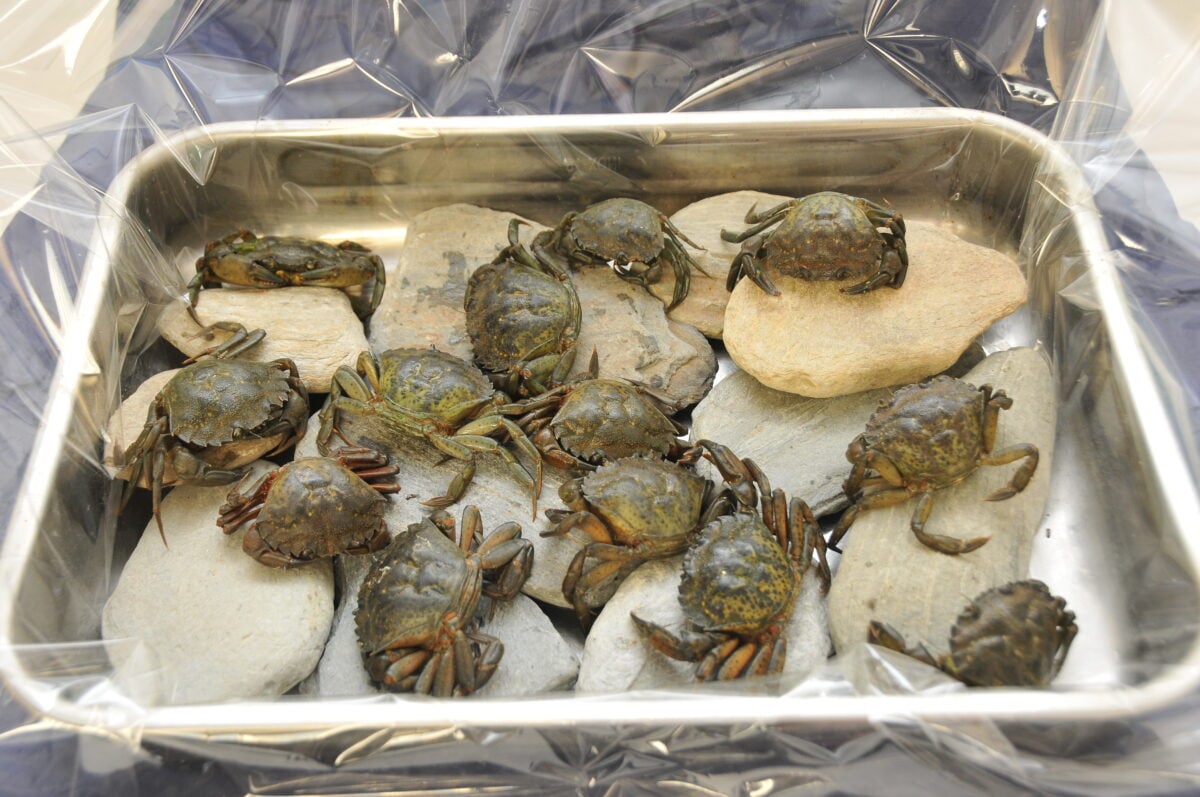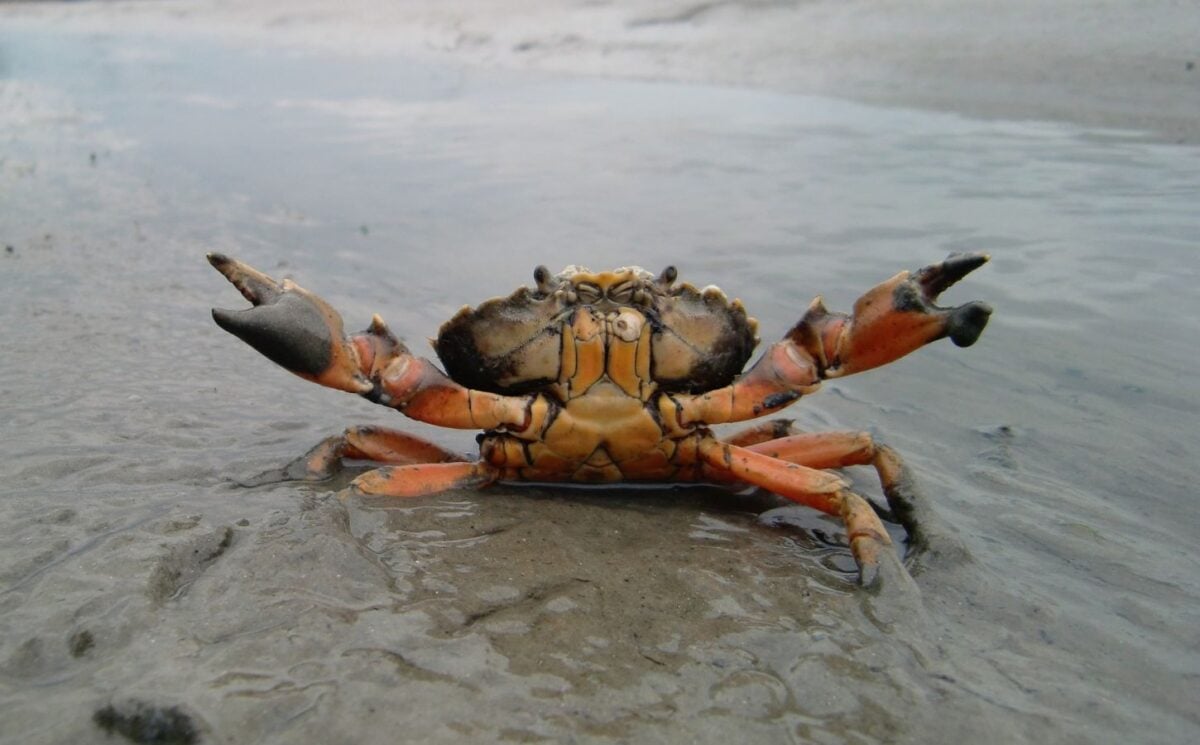A group of Swedish researchers have found that crabs feel pain and that their responses to uncomfortable stimuli are not simply reflex actions.
Read more: The UK Government Is Facing Legal Action Over Lobsters – Here’s Why
Previous observational studies indicated that crustaceans feel pain, but this team is the first to carry out EEG-style measurements. They detected pain stimuli being sent to the brains of shore crabs, a common decapod crustacean, during chemical and mechanical “stimulation.”
The research was published in the journal Biology. Its authors note that the capacity for pain in decapod crustaceans has historically “been questioned,” but that their work can be used to determine “welfare implications and humane treatment” of the animals moving forward.
Eleftherios Kasiouras, a student at the University of Gothenburg and the lead study author, noted that the research also has implications for the treatment of lobsters and other shellfish, who, like crabs, are not covered by EU animal welfare legislation and routinely boiled alive.
“It is a given that all animals need some kind of pain system to cope by avoiding danger. I don’t think we need to test all species of crustaceans, as they have a similar structure and therefore similar nervous systems,” explained Kasiouras. “We can assume that shrimps, crayfish, and lobsters can also send external signals about painful stimuli to their brain.”
Despite the rapidly developing alternative “seafood” market, up to 580 billion farmed crustaceans – including crabs, lobsters, prawns, shrimps, and crayfish – are killed every year.
Read more: Scientists Capture Footage Of Octopuses And Fishes Hunting Cooperatively
Animal sentience and crustaceans

By proving that crabs do feel pain, this new research could add further scientific weight to campaigners’ arguments that crustaceans and other animals require additional protection. However, it’s worth noting that carrying out research of this type is itself dependent on causing animals pain and discomfort, and then recording the results.
The report from The University of Gothenburg is also just the latest in decades of research on crabs and pain responses. That existing body of research arguably provides more than enough evidence that crustaceans are worthy of protection, without additional testing.
Even if crabs and other crustaceans are formally recognized as able to feel pain, there is no guarantee that legislative protection or state intervention will protect them from cruelty. Animal sentience was officially enshrined in UK law in 2021 by the Conservative government of the time, but cruelty and neglect remain widespread throughout the farming industry.
The UK Animal Sentience Bill even explicitly recognized crustaceans – and cephalopods – as sentient beings who “experience feelings in the same way humans do,” but government inaction means that crabs, lobsters, and other sentient aquatic creatures are still boiled alive.
Many animal advocates argue that there is no humane way to farm and kill animals, meaning abstaining from eating crustaceans – and all animals – is the only ethical route.
Plant Based News does not condone the use of animals in research.
Read more: If Lobsters Are Sentient, Why Can We Still Boil Them Alive?






